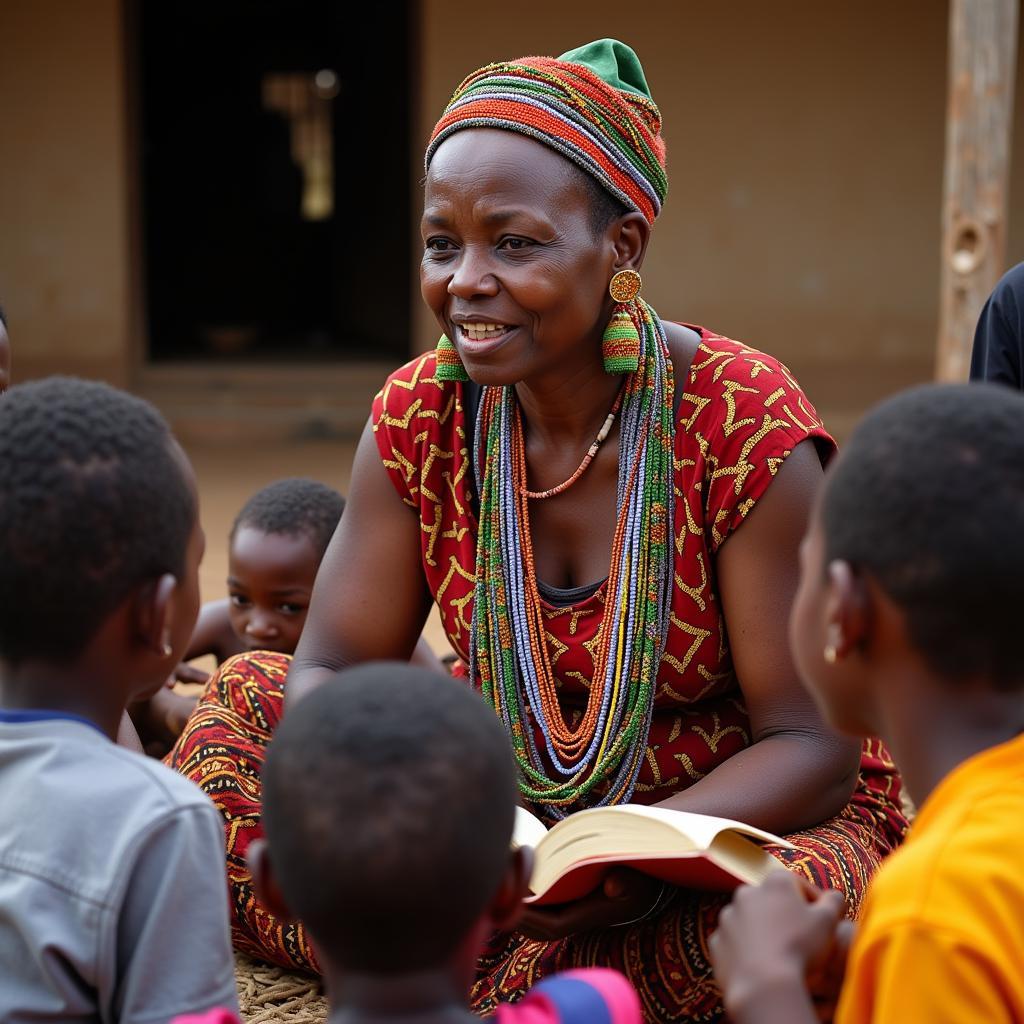A Journey Through African Hair: Styles, Significance, and Care
African Hair is as diverse as the continent itself, encompassing a stunning array of textures, styles, and cultural meanings. From the tightly coiled curls of the Sahel to the loose waves of the southern coast, African hair tells a story of heritage, identity, and self-expression. This journey through the world of African hair delves into its unique characteristics, cultural significance, and traditional care practices.
The Beauty of Diversity: Exploring Different African Hair Types
One of the most captivating aspects of African hair lies in its incredible diversity. Categorized broadly into four main types – from the tightly coiled 4C to the looser 3A curls – each texture possesses its own distinct beauty and challenges. Understanding your hair type is the first step to embracing its natural state and developing a personalized care routine.
Beyond Aesthetics: The Cultural Significance of African Hair
For centuries, African hair has served as more than just a physical attribute. Intricate hairstyles have long been used to communicate social status, marital standing, and tribal affiliations. Braids, twists, and locks hold deep cultural significance, often symbolizing community, strength, and spiritual connection.
For instance, the Himba people of Namibia use red ochre to style their hair, while the Wodaabe men of Niger adorn elaborate hairstyles for their annual Gerewol festival, aiming to attract a mate. These examples illustrate how African hair transcends mere aesthetics, embodying a rich tapestry of traditions and beliefs passed down through generations.
Nurturing Your Crown: Traditional African Hair Care Practices
Traditional African hair care routines prioritize natural ingredients and time-honored techniques to maintain healthy and vibrant hair. Shea butter, coconut oil, and baobab oil are just a few examples of the nourishing ingredients used for centuries to moisturize, strengthen, and protect African hair.
Beyond specific ingredients, traditional practices emphasize gentle handling and protective styling. Techniques such as pre-washing detangling, finger detangling, and low manipulation styles help minimize breakage and promote healthy hair growth.
Navigating the Modern World: Embracing Natural Hair
In recent years, there’s been a powerful movement encouraging individuals of African descent to embrace their natural hair texture. This movement challenges Eurocentric beauty standards and celebrates the unique beauty of African hair in all its forms.
african hair braiding gallery provide inspiration and resources for those seeking to explore different natural hairstyles. From braid outs and twist outs to wash-and-go styles, the options are endless, allowing individuals to express their personal style while embracing their natural crown.
Addressing Common Concerns: Myths and Misconceptions about African Hair
Unfortunately, many myths and misconceptions surround African hair. One common misconception is that African hair is strong and resilient, leading to improper handling and potential damage. In reality, while the hair strands themselves might be strong, the curly and coiled structure makes African hair more prone to breakage, requiring gentle care and attention.
african hair restoration offers valuable insights and solutions for individuals facing hair loss or damage. By understanding the specific needs of African hair and adopting appropriate care practices, it’s entirely possible to maintain healthy, vibrant, and thriving hair.
Conclusion
African hair is a testament to the continent’s rich cultural tapestry and diverse beauty. From its varied textures and intricate styles to its deep-rooted traditions, African hair embodies a unique story of heritage, identity, and self-expression. By embracing its natural beauty, understanding its specific needs, and honoring its cultural significance, we celebrate the extraordinary legacy of African hair for generations to come.
FAQ about African Hair
1. What are the best products for African hair?
The best products for African hair are those rich in moisture and formulated to address specific hair needs. Natural oils like coconut oil, shea butter, and jojoba oil are excellent moisturizers, while products containing aloe vera and honey can soothe the scalp and promote hair growth.
2. How often should I wash my African hair?
The frequency of washing depends on your hair type and lifestyle. Generally, washing once a week or every other week is sufficient to prevent dryness and product buildup.
3. Is it true that African hair doesn’t grow long?
This is a myth. African hair grows at the same rate as other hair types. However, shrinkage and breakage can make it seem like African hair grows slower.
4. How can I prevent breakage in my African hair?
Gentle handling is key to preventing breakage. Detangle hair carefully, avoid tight hairstyles, and moisturize regularly to keep hair healthy and strong.
5. What are some protective styles for African hair?
Protective styles like braids, twists, and locs help minimize manipulation and protect hair from environmental damage, promoting healthy growth.
For further exploration:
african hair clipart offers a collection of illustrations showcasing the beauty and diversity of African hairstyles.
african hair braiding styles 2015 provides a glimpse into the trending braiding styles that continue to inspire and captivate.
african hair spray can help you discover natural and effective hair sprays suitable for maintaining various African hairstyles.
Need help or have questions about African hair? Contact us at +255768904061 or [email protected]. Visit us at Mbarali DC Mawindi, Kangaga, Tanzania. Our team is available 24/7 to assist you!
